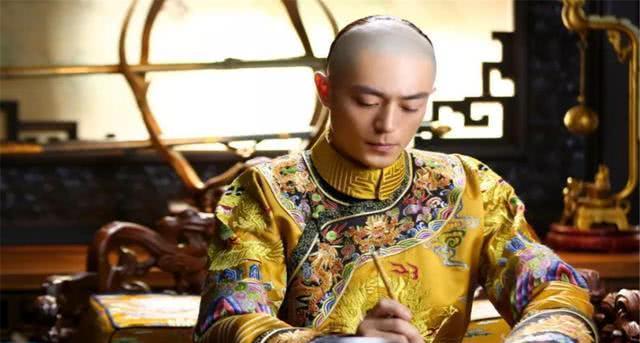The Qianlong Emperor of the Qing Dynasty lived to be 89 years old, which is definitely a long lifespan in ancient times; even today, 89 years old is also a long-lived old man; from ancient times to the present, people have repeatedly explored the longevity secrets of the Qianlong Emperor and found that he never took jinshi Dan medicine like the previous emperors, and his living habits were very scientific; the most representative thing is that Qianlong often ate three kinds of food, especially for one of the Manchu civilian cuisines; what is Qianlong's health care sutra and favorite food? Let's take a look!

Throughout the thousands of years of China's history, successive emperors have hoped to see that their rivers and mountains will always be stable, and they themselves can live forever; they take more Golden Stone Dan medicine to prolong their lives, and even look forward to becoming immortals; for example, Qin Shi Huang sent Xu Fu and Han Zhong to lead a team to spend huge amounts of money on expeditions to seek the medicine of immortality; Ge Hong, a Taoist teacher of the Jin Dynasty, was good at alchemy, and he wrote "Baopuzi", in which he elaborated on the alchemy method and the principle of immortality; the Jiajing Emperor of the Ming Dynasty set up an alchemy room in the palace, and he concentrated on cultivating and refining Dan for immortality All these emperors never achieved the desire for immortality, but all died early due to poisoning by taking Dan medicine; and according to the Qing Palace's "Living Records", Yongzheng had a period of time to transport a large amount of charcoal to the Yuanmingyuan, and there was also a suspicion of alchemy.
Qianlong is the longest-lived emperor in history; he is also a representative figure of the Manchu emperor who pays attention to health care; he has a unique view on health care; through all the archives of the Qing Palace, people have not found that Qianlong has signs of alchemy; and the lifestyle of this "ten perfect old man" is worth learning from future generations; according to modern scientific research, Qianlong combined sports fitness, mental hygiene, and dietary conditioning with medicinal bait to achieve a very high realm in health care; The Qianlong Emperor was open-minded throughout his life and paid attention to daily living and recuperation. He followed the ancestral system, insisted on going to the "Mulan Paddock" every year to hunt and fitness, and then often cruised Changzhi, following the example of his grandfather Liuxia Jiangnan; Qianlong had a wide range of interests and hobbies, not only proficient in poetry and songs, but also designed handicrafts, which was the biggest "play master" in China; most importantly, Qianlong usually paid great attention to diet, was good at using medicine and food for health care, and systematically practiced health care experience.
What exactly was the longevity diet of the Qianlong Emperor? The Qing Dynasty was the dynasty with the heaviest ceremonial system in China's feudal dynasty, and the emperor stipulated that there must be 108 dishes per meal; Qianlong's table was dazzling with the taste of the mountains and the sea; but he liked, often ate, and used for health care, but there were only three kinds of food; the first, the Eight Treasure Cakes; the Eight Treasure Cakes were composed of ginseng, bai shu, poria, barley, lentils, mustard fruit, and white sugar; it had the effect of fixing the intestines, stopping diarrhea, and improving the spleen; according to the Qing Palace's "Medicine Bottom Book", the Qianlong Emperor began from the age of 67 until he was more than 80 years old. He often ate eight precious cakes: "From February 19, 1941 in Qianlong... Close it with eight treasure cakes four times, and use the second ginseng eight coins; "The second dish of Qianlong longevity food is honey;
According to modern scientific research, honey contains a variety of nutrients, which have a significant effect on delaying aging; according to the "Qing Palace Archives", the Qianlong Emperor began to take honey regularly every few days to supplement the body every few days since he was only 37 years old; a meal list for the Emperor's dinner on October 1, 1212 was written, and there were bird's nest ducks and osmanthus radishes in the dinner... In addition to food such as sacrificial pigs and mutton, there is also a taste of honey.
The third food of the Qianlong Emperor's longevity diet, almost no shortage of meals throughout the year, it is neither the taste of mountains and treasures, the price is still very close to the people; it is the Manchu folk traditional cuisine - northeast tofu; manchus have a long history of making tofu; the northeast area is China's most important soybean production base, northeast soybeans are also the best quality soybeans; plus the brine used to make tofu comes from the Songhua River, Nenjiang and other river basins, with a very suitable pH; so the tofu tastes excellent; according to modern scientific research, Soy products are rich in protein, as well as a variety of minerals, but do not contain cholesterol, long-term consumption is conducive to the prevention of obesity, arteriosclerosis, hypertension, hyperlipidemia, coronary heart disease and other diseases.
Therefore, whether a person's longevity is long or not has a great relationship with living habits and diet; from the personal experience of the Qianlong Emperor, health is summarized
Concept: Some ordinary ingredients are rich in high nutritional value; the traditional Manchu health care methods continued and applied in the Qing Dynasty court, bringing valuable experience to modern people.
[References: "Medicine Bottom Book", "Living Record", "Qing Palace Archives"]